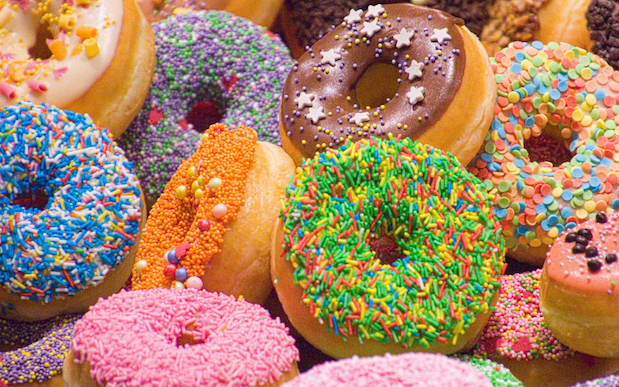
According to Beyond Blue, approximately 2 million Australians suffer from anxiety each year. This debilitating condition can be caused by a range of physical, mental and circumstantial factors, and it’s important to acknowledge that anxiety manifests itself differently for everyone.
However, what many people don’t realise is that what they’re outing in their mouths might be a significant contributing factor in their mental and emotional health.
We all like to feel safe, but unfortunately anxiety is a safety mechanism gone a little overboard. When high stimulus foods such as caffeine, sugar and high glycaemic carbohydrates enter the blood stream, they activate the body’s fight or flight response, causing a rush of adrenaline and consequently, a feeling of anxiety or panic. By reducing these high stimulus foods and replacing them with foods rich in anxiety-soothing vitamins and minerals, many sufferers of anxiety will notice a considerable improvement in their overall condition.
As someone who suffers from anxiety and panic disorder myself, I understand how it feels when anxiety takes hold. By learning about my anxiety, understanding its functional purpose, and adjusting my daily habits, I have learnt to live in harmony with my anxiety and manage it throughout life’s many ups and downs.
Here is a list of foods to limit which contribute to anxiety and some anxiety-soothing wonders to add in!
Foods That Can Contribute To Anxiety
Caffeine
A powerful stimulant. I found out the hard way on a treadmill about a decade ago after shooting my daily double espresso as a busy personal trainer and had my first full blown panic attack as an adult. It’s not just coffee though you can find it in energy drinks, black tea, chocolate, pre-workout and weight-loss pills.
Alcohol
Yes, alcohol can relax the nervous system, but it’s the amount and the frequency we need to look out for. Many people can have the first panic attack after a big night out. If you are going to have a big night, smash a banana for the potassium and coconut water for electrolytes as soon as you wake up.
Sugar
We all know sugar makes us hyper! This is basically because it sky rockets our blood sugar levels, causing adrenalin to shoot all around our body and fluctuating our mood. Balance your blood sugar levels with a low or no sugar diet and always eat low GI – keep reading!
High Glycemic Carbohydrates (Aka Simple Carbs)
Things like sugar, white bread and white pasta can spike your blood sugar level, and of course what goes up must come down.
Fried Foods
Your hot chips, fried chicken and onion rings! They are usually cooked in hydrogenated oil (aka trans fats), which may increase your risk of high, blood pressure and heart disease. They also offer very little nutrition!
Foods That Can Soothe Anxiety
Complex Carbohydrates (Aka Low Glycemic Index)
In other words carbohydrates that metabolise slower and therefore help maintain a more even blood sugar level, which creates a calmer feeling and will boost serotonin. Foods that are complex carbs include whole-grains, oats, sweet potatoes and brown rice.
Fats
Omega 3 is integral for brain health. We can also call them EPA and DHA helps. Omega 3 promotes nervous system development and optimises memory function. Foods which are rich in healthy fats are salmon, sardines, oysters, avocados, chia seeds, flaxseeds, nuts and fish oils.
High Quality Protein
You need the essential amino acids in protein to produce neurotransmitters dopamine and serotonin (also known as the happy hormones), which have the potential to improve your mental health.
Antioxidants
These can help to reduce inflammation and prevent damage to cells by preventing the build up of free radicals in the brain. Foods rich in antioxidants are any fruit and vegetable that is rich in colour, like berries, capsicums and citrus fruits.
Gut Food
Now we couldn’t talk about the brain without mentioning the gut, and to be honest the emerging evidence of the importance of the gut-brain axis is a whole article in itself. Today I am going to skim the surface by simply telling you there’s new evidence that the bacteria in the gut are linked to the workings and the health of your brain. So with the use of probiotic and prebiotic foods we can potentially strengthen our mental health and brain functioning. Some probiotic-rich foods include pickles, sauerkraut, kefir, kimchi, miso, kombucha, apple cider vinegar and yoghurt. It’s all very new, but I can tell you the researchers are just finding out how a class of probiotics called ‘psychobiotics’ could be used to modify gut bacteria to alleviate anxiety, depression, and LOTS more.
B-Vitamins
Ever felt low and weird after a night on the tiles? Well that may have been down to missing these guys as alcohol depletes b vitamins. Now B’s are integral for our mental health, as my example shows us and all 8 of them have different roles to play in our body. B vitamins can be found in foods like leafy greens, beans and wholegrains.
Vitamin D
There have been some studies that show some positive effects to improving levels of calming neurotransmitters, but the evidence is still a little inconclusive on this one. Vitamin D can be found in foods like salmon, beef liver, egg yolks and cheese. Oh, and of course sunlight and supplementation.
Magnesium
Yup, not just for an athlete with muscle cramps. Magnesium is a total anxiety super food that us nutritionists prescribe on a daily basis to MOST people, because a lot of people are also deficient. Magnesium plays a role in over 300 different processes in the body, but one that is pretty crucial for managing anxiety are its relaxation benefits and can dramatically improve sleep quality. Magnesium can also be found in foods like leafy greens, nuts, seeds, seafood, tofu, dark chocolate,
legumes and whole grains.
Zinc
Now if you think magnesium has a lot of jobs in the body, zinc is working double shifts! Enzymes containing zinc are necessary for the synthesis of serotonin…this means producing more of your happy hormone.Zinc can be found in foods like seafood, meat, leafy greens, beans & seeds.
Herbs
These sometimes get forgotten, but they really shouldn’t be. I am obsessed with tea, maybe something to do with being British, but I like to call it ‘tea therapy’. I truly believe there is a herbal tea for every mood. Some ones that are especially good for soothing the nervous system are chamomile, lemon balm, kava and passionflower.
Spices
Another inexpensive way to promote calm is using these simple and widely available ingredients. I’m a big fan of turmeric which is a spice that contains curcumin which is a compound studied for its role in promoting brain health.
Water
I know we always hear this, but that’s because it’s SO important… Stay hydrated! Dehydration can actually cause mood changes.
Learn more about anxiety foods in Rosie’s new PodcastOne original series Food Hacker, where she demystifies modern diets and separates the fact from fiction.







